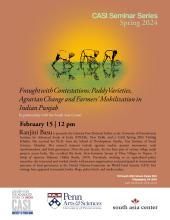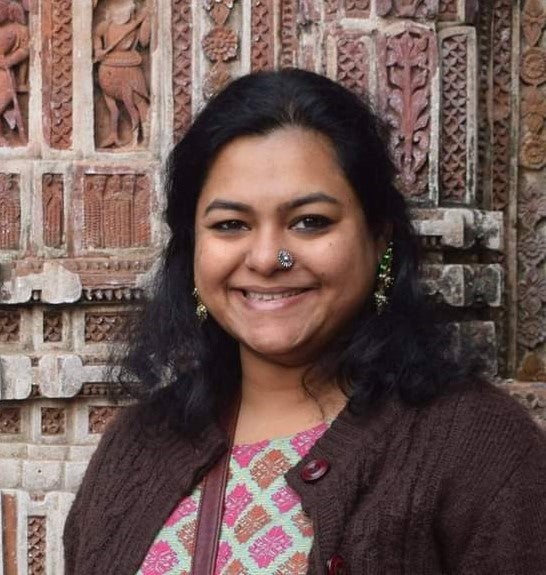
About the Seminiar:
The world over there is a raging debate over farm subsidies and ecological transitions, with farmers across Europe holding protests to contest the transition costs pushed onto them. In Indian Punjab, this debate has a much longer history in the policies toward crop diversification, starting from the 1980s onward. Paddy, initially an alien crop in Punjab, has now become the main kharif or summer crop, covering more than 70 percent of the State’s net sown area. The Punjab farmer finds himself at the center of one of the most heated sites of ecological contestations as paddy has come to be associated with the State’s fast depleting water-table and with stubble burning induced pollution in more recent times. Since the adoption of alternative crops has largely failed, the focus of the ecological diversification project has shifted toward the promotion of paddy varieties, which have a shorter cycle and are, in turn, water saving. With in-depth household survey data among paddy farmers in Ludhiana district, and qualitative interviews conducted with different stakeholders across the paddy supply chain, this seminar tries to break down the drivers behind the adoption of the newer paddy varieties. The field data shows that apart from its actual intention, adoption of the shorter paddy varieties showcase a trend of further agricultural intensification driven by an escalating cost of land rent and overall cost of cultivation. This has implications for greater concentration of land and squeezing out of the less resourceful, smaller peasantry. Furthermore, this agrarian-change view with the paddy varieties at its center provides us an entry point into understanding the different articulations of ecological transitions among the Punjab’s farmer unions, who have appeared as the most vocal and organized political mobilizations in recent times.
About the Speaker: Ranjini Basu is the Garware Post-Doctoral Fellow at the University of Pennsylvania Institute for Advanced Study of India (UPIASI), New Delhi and a CASI Spring 2024 Visiting Scholar. She received her Ph.D. from the School of Development Studies, Tata Institute of Social Sciences, Mumbai. Her research interests include agrarian studies, peasant movements, rural transformations, and food governance. Over the past decade, she has been part of various village study projects across India. She co-edited the book, Socio-Economic Surveys of Three Villages in Tripura: A Study of Agrarian Relations (Tulika Books, 2019). Previously, working as an agricultural policy researcher, she interacted and worked closely with peasant organizations and participated in international processes of food governance at the United Nations-Committee on World Food Security (CFS). Her writings have appeared in journals, books, blogs, policy briefs, and media outlets.
Ranjini Basu is the Garware Post-Doctoral Fellow at the University of Pennsylvania Institute for Advanced Study of India (UPIASI), New Delhi and a CASI Spring 2024 Visiting Scholar. She received her Ph.D. from the School of Development Studies, Tata Institute of Social Sciences, Mumbai. Her research interests include agrarian studies, peasant movements, rural transformations, and food governance. Over the past decade, she has been part of various village study projects across India. She co-edited the book, Socio-Economic Surveys of Three Villages in Tripura: A Study of Agrarian Relations (Tulika Books, 2019). Previously, working as an agricultural policy researcher, she interacted and worked closely with peasant organizations and participated in international processes of food governance at the United Nations-Committee on World Food Security (CFS). Her writings have appeared in journals, books, blogs, policy briefs, and media outlets.

